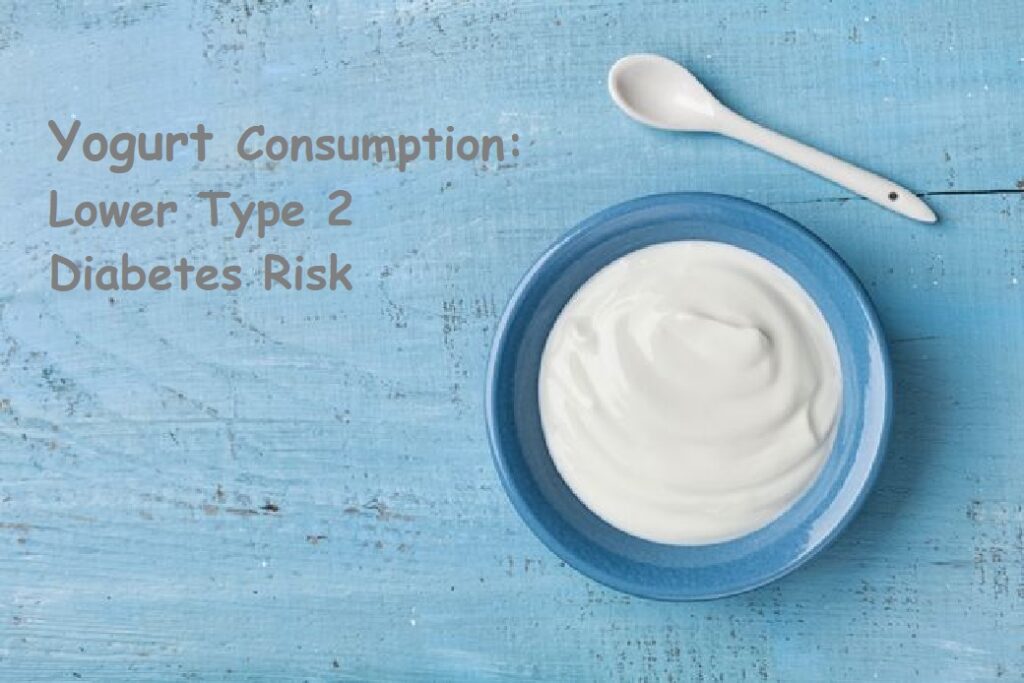Quick Facts
The FDA has authorized a conditional health statement suggesting that yogurt may lower the risk of type 2 diabetes.
These statements don’t demand extensive scientific backing and necessitate precise language.
Yogurt is merely among numerous foods that may aid in managing healthy blood sugar levels.
Could a common refrigerator item assist in preventing type 2 diabetes? Food producers are now permitted to assert that yogurt lowers the risk of this chronic condition, thanks to a recent decision by the Food and Drug Administration (FDA).
Starting from March 1, 2024, the FDA declared its non-objection to specific qualified health assertions related to yogurt intake and the decreased likelihood of type 2 diabetes, provided they are formulated in manners that don’t deceive consumers.
The permissible claims now encompass:
*Consuming yogurt on a regular basis, with a minimum of 2 cups (equivalent to 3 servings) per week, could potentially decrease the risk of type 2 diabetes, although the FDA has noted limited evidence to support this assertion.
*Regular consumption of yogurt, at a minimum of 2 cups (3 servings) per week, might lower the risk of type 2 diabetes based on limited scientific evidence.
However, what defines a “qualified” health claim?
According to registered dietitian and diabetes educator Erin Palinski-Wade, RD, CDCES, author of 2 Day Diabetes Diet, a qualified health claim is regarded by the FDA as a claim supported by scientific evidence but falls short of meeting the standard of “significant scientific agreement” (SSA), as reported by Health magazine.
While the SSA standard demands well-conducted studies and consensus among scientists regarding a food’s health effects, a qualified health claim does not necessitate such comprehensive backing. Consequently, the FDA enforces precise language for these claims.
Given these linguistic nuances, some worry that this recent decision might mislead consumers into thinking that yogurt is a cure-all for type 2 diabetes.
“Consumers might be misled into viewing yogurt as a ‘quick solution’ for managing their blood sugar,” stated Caroline Thomason, RD, CDCES, a dietitian and diabetes educator practicing privately in Washington, DC, to Health magazine. She emphasized that this perception is not accurate, as not all yogurt varieties are suitable for maintaining stable blood glucose levels. However, she acknowledged that certain research on yogurt and type 2 diabetes show promise.
Here, we’re examining whether consuming a serving of yogurt every other day could genuinely help prevent diabetes.
The Origin of the Qualified Health Claim
The authorization of claims regarding yogurt and diabetes is the culmination of several years of progress.
In 2018, Danone North America (parent company of Dannon, Activia, and Silk yogurts) filed a petition with the FDA, requesting approval to promote their products as reducing the risk of type 2 diabetes.
The petition underscored yogurt’s evidence-supported connections to reduced type 2 diabetes rates. It also highlighted research indicating that yogurt as a whole food, rather than just its individual nutrients, is linked to a lower risk of type 2 diabetes.
In the following years, the FDA reviewed this evidence, eventually determining that “some credible evidence” indicates a potential inverse correlation between yogurt consumption and the risk of diabetes (although they acknowledged that the evidence is limited). Consequently, a qualified health claim emerged.
Can the consumption of yogurt genuinely lower the risk of developing type 2 diabetes?
For its abundant probiotics and protein content, yogurt has been recognized as a nutritious food. These nutrients might potentially lead to a decreased risk of type 2 diabetes.
“Yogurt, being a protein source, aids in blood sugar regulation and might assist in controlling hunger signals later in the day, particularly when consumed during breakfast,” Thomason remarked. Conversely, probiotics have shown promise as a therapeutic approach for type 2 diabetes due to their capacity to alleviate inflammation, as indicated by research conducted in 2023.
As noted by Danone, numerous studies have examined the overall impact of yogurt on type 2 diabetes.
For instance, a review published in The Journal of Dairy Science in 2022 indicated that the majority of cohort studies demonstrated that fermented dairy products provided protective effects against the development of diabetes.
Yogurt emerged as the most consistently protective food against the disease. Additionally, a study published in the Journal of Nutrition in 2017 concluded that, within the framework of a broader healthy diet, yogurt may lower the risk of type 2 diabetes in both healthy individuals and older adults with a high cardiovascular risk.
Conversely, not all studies yield equally promising results. According to a meta-analysis published in Nutrients in 2019, probiotic yogurt showed no discernible effects on fasting blood glucose, fasting insulin, or insulin resistance. Additionally, certain yogurt varieties might even pose risks for individuals with or at risk of type 2 diabetes, as pointed out by Palinski-Wade. “Many yogurts available in the market are sweetened with significant amounts of added sugar, which can adversely affect blood sugar levels.”
Choosing a Yogurt for Better Health
To make a wise choice for your blood sugar levels, it’s advisable not to simply grab any yogurt from the store shelf.
“When it comes to benefiting blood sugar and managing diabetes, opting for unsweetened yogurt with live active cultures (probiotics) may offer the greatest advantages,” recommended Palinski-Wade. She advised seeking out high-protein yogurt, such as plain Greek yogurt, to help maintain blood sugar balance and control appetite.
However, if you’re craving flavor, there are still options available. “You can explore flavored options that are free from added sugar or opt for sugar-free varieties,” suggested Thomason. “Although these may be sweetened with artificial sweeteners or ingredients like Stevia, they won’t spike your blood sugar levels by adding extra sugar to your daily intake.”
Preventing Type 2 Diabetes Through Alternative Dietary Selections
Yogurt may offer advantages for blood sugar regulation, but it’s not the sole food that could contribute to the prevention of type 2 diabetes. According to Palinski-Wade, incorporating foods such as berries, beans, lentils, almonds, and avocados into your diet can also help stabilize glucose levels.
Furthermore, adopting an anti-inflammatory dietary approach like the Mediterranean or DASH diet might assist in maintaining healthy blood sugar levels. According to the Centers for Disease Control and Prevention (CDC), following a Mediterranean-style eating pattern has been associated with benefits such as improved hemoglobin A1C and cholesterol levels.
However, if you enjoy yogurt, it can still be included as a diabetes-friendly snack, provided it is low in sugar and rich in protein. “If you already have diabetes,” noted Thomason, “yogurt can aid in blood sugar management while also providing a beneficial amount of protein and gut-friendly probiotics.”







Самые трендовые новинки модного мира.
Абсолютно все новости лучших подуимов.
Модные дома, лейблы, высокая мода.
Интересное место для модных хайпбистов.
https://egomoda.ru/
Очень стильные новинки мира fashion.
Важные эвенты самых влиятельных подуимов.
Модные дома, бренды, гедонизм.
Новое место для трендовых хайпбистов.
https://whitesneaker.ru/
Очень актуальные события мира fashion.
Абсолютно все мероприятия самых влиятельных подуимов.
Модные дома, бренды, haute couture.
Свежее место для модных людей.
https://urban-moda.ru/
Несомненно свежие новости мировых подиумов.
Все новости лучших подуимов.
Модные дома, торговые марки, haute couture.
Лучшее место для стильныех людей.
https://worldsfashion.ru/
You have brought up a very wonderful points, appreciate
it for the post.
Hello! Quick question that’s totally off topic. Do you know how to make your
site mobile friendly? My web site looks weird when browsing from my
iphone. I’m trying to find a theme or plugin that
might be able to resolve this problem. If
you have any suggestions, please share. Thanks!
Way cool! Some very valid points! I appreciate you penning this article plus the rest of the site is very good.